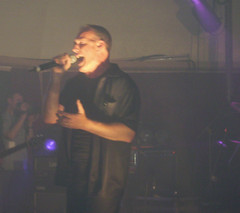Sylvia Pankhurst in Ethiopia

On Saturday I went to a talk by Professor Richard Pankhurst, son of legendary suffragette and communist Sylvia Pankhurst. Professor Pankhurst works at the department of Ethiopian Studies at Addis Ababa University. He was visiting Edinburgh both to talk about his mothers work in Ethiopia and to continue his agitation for the return of certain artefacts that were looted from the Ethiopian people by the British Empire.
Sylvia Pankhurst was a leader of the suffragette movement, which fought for votes for women. She was also a pioneering member of the communist movement in Britain, firstly through the Workers Socialist Federation and later as a founder member of the Communist Party of Great Britain. She was never happy in the CPGB and instead left to ally herself with other dissidents such as John Maclean in Scotland. She was very critical of Stalinism.
Professor Pankhurst explained how his mother had become involved with Ethiopia. As a visitor to Italy prior to Mussolini's seizure of power she became aware of the growing threat of fascism. The blackshirts did seize power and Mussolini followed an expansionist policy, invading Ethiopia. The League of Nations implemented only limited sanctions in reply to this. The British were more worried about their own colonial influence in the region.
In solidarity Sylvia launched the New Times and Ethiopia News an anti-fascist weekly which soon reached a circulation of 10,000 throughout Europe and Africa. It took up the cause of Spain as well as that of Ethiopia. Copies were smuggled into Ethiopia and Professor Pankhurst spoke of being shown one by a veteran Ethiopian anti-fascist. Sylvia exposed the role of British imperialism and their inaction against fascism.
When war broke out she agitated for recognition of the Ethiopian resistance as an ally against the fascist axis. For example, the BBC had a regular programme featuring the national anthems of the allies. They refused to play the Ethiopian anthem arguing firstly that the Ethiopians had not signed the international treaty on anthems, and then that they were not formally part of the allied forces. But thanks to Sylvia's efforts they were forced to relent.
The final part of the discussion looked at the efforts to return Ethiopian relics to their home country. The discussion was held in a church (St. John's Episcopalian) that had itself returned a sacred relic to Ethiopia. The relic, a tablet with an image of the Arc of the Covenant, was returned to an ecstatic welcome in Addis Ababa. Now the return of a drum held at Edinburgh Castle is demanded.
Overall a fascinating talk and an insight into the rôle of Britain in allowing fascist aggression in Africa. Handouts from the Ethiopian Embassy were less encouraging, full of anti-Eritrean propaganda and articles on the privatisation of the phone network in Ethiopia. And as a friend of mine commented, when millions of children go to bed hungry, should we really be so concerned about the whereabouts of some old bits of wood? Of course these objects have a symbolic value...just look at Scotlands own "stone of destiny" saga.
:: | 12:07 pm | | ||
0 Comments:
This is an archived story. See current posts here!


